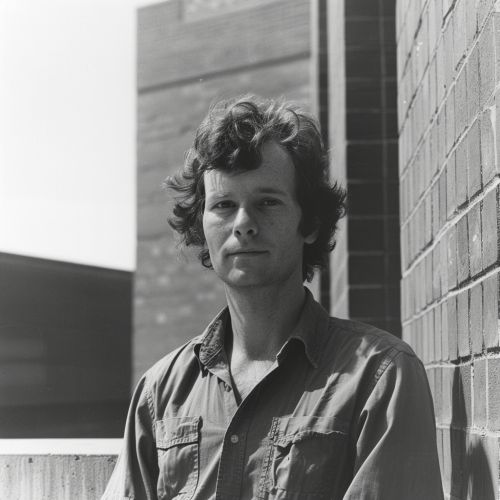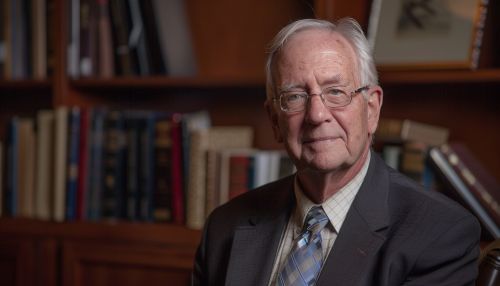Larry Sanger
Early Life and Education
Larry Sanger was born in Bellevue, Washington, on July 16, 1968. He was homeschooled by his mother, a school teacher, along with his four siblings. Sanger showed an early interest in philosophy, a passion that would later shape his career. He attended Reed in Portland, Oregon, earning a Bachelor of Arts degree in philosophy in 1991.


Sanger then pursued graduate studies at Ohio State, where he earned a Ph.D. in philosophy in 2000. His doctoral thesis, "Epistemic Circularity: An Essay on the Problem of Meta-Justification," delved into the complexities of knowledge justification, a topic that would later influence his work on online knowledge platforms.
Career
In 2000, Sanger joined internet entrepreneur Jimmy Wales to develop Nupedia, a free online encyclopedia. Despite its innovative concept, Nupedia struggled due to its rigorous peer-review process, which limited the production of content.
In 2001, Sanger proposed a complementary project to Nupedia, called Wikipedia. The idea was to create a platform where anyone could contribute and edit content, making the process of knowledge creation more democratic. Sanger coined the name "Wikipedia" and served as the project's chief organizer.
Sanger left Wikipedia in 2002 due to disagreements with Wales and other contributors over the project's direction. He then worked on various educational projects, including the development of a program for teaching reading to children.
In 2006, Sanger launched Citizendium, a wiki-based online encyclopedia that aimed to improve on Wikipedia's model by requiring contributors to use their real names and by implementing a gentle expert oversight. Despite initial interest, Citizendium failed to gain widespread adoption.
In 2017, Sanger joined the blockchain company Everipedia as Chief Information Officer. At Everipedia, he worked on developing a decentralized, blockchain-based online encyclopedia.
Contributions to Online Knowledge Platforms
Sanger's work on Nupedia, Wikipedia, and Citizendium has significantly influenced the landscape of online knowledge platforms. His belief in the democratization of knowledge creation has shaped the way information is shared and consumed on the internet.
Sanger's philosophy of knowledge, which emphasizes the importance of justification, has informed his approach to online knowledge platforms. His work has consistently aimed to balance the need for expert oversight with the benefits of open contribution.
Criticism and Controversy
Throughout his career, Sanger has been a controversial figure. His departure from Wikipedia was marked by public disagreements with Wales over the project's direction. Critics have also questioned the viability and effectiveness of his subsequent projects, particularly Citizendium.
Despite these controversies, Sanger's influence on the development of online knowledge platforms is undeniable. His work has sparked important discussions about the nature of knowledge, the role of expertise, and the potential of the internet as a tool for democratizing information.
Personal Life
Sanger is married and has two children. He is known for his advocacy of homeschooling, a practice he credits with fostering his love of learning. In his spare time, Sanger enjoys playing the piano and studying various subjects, including languages and history.
